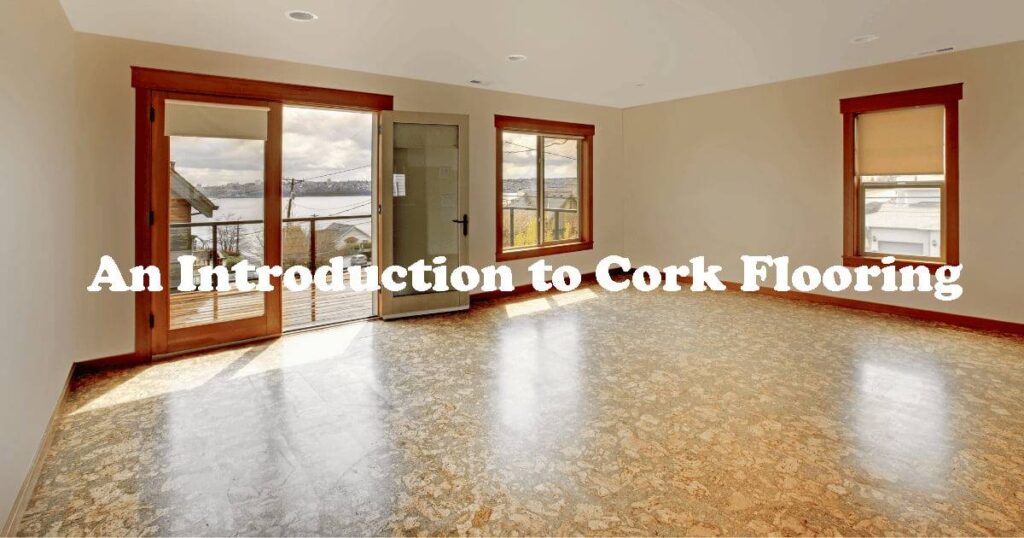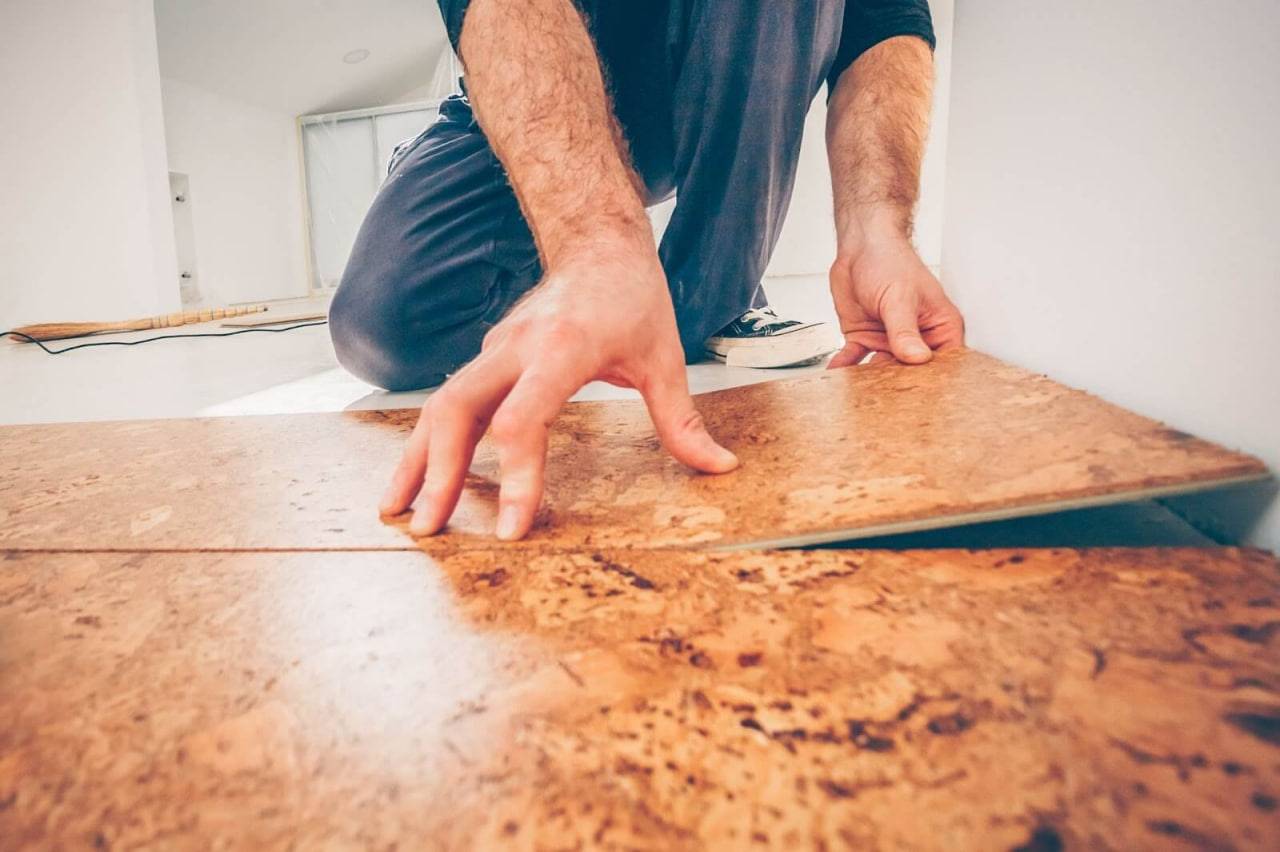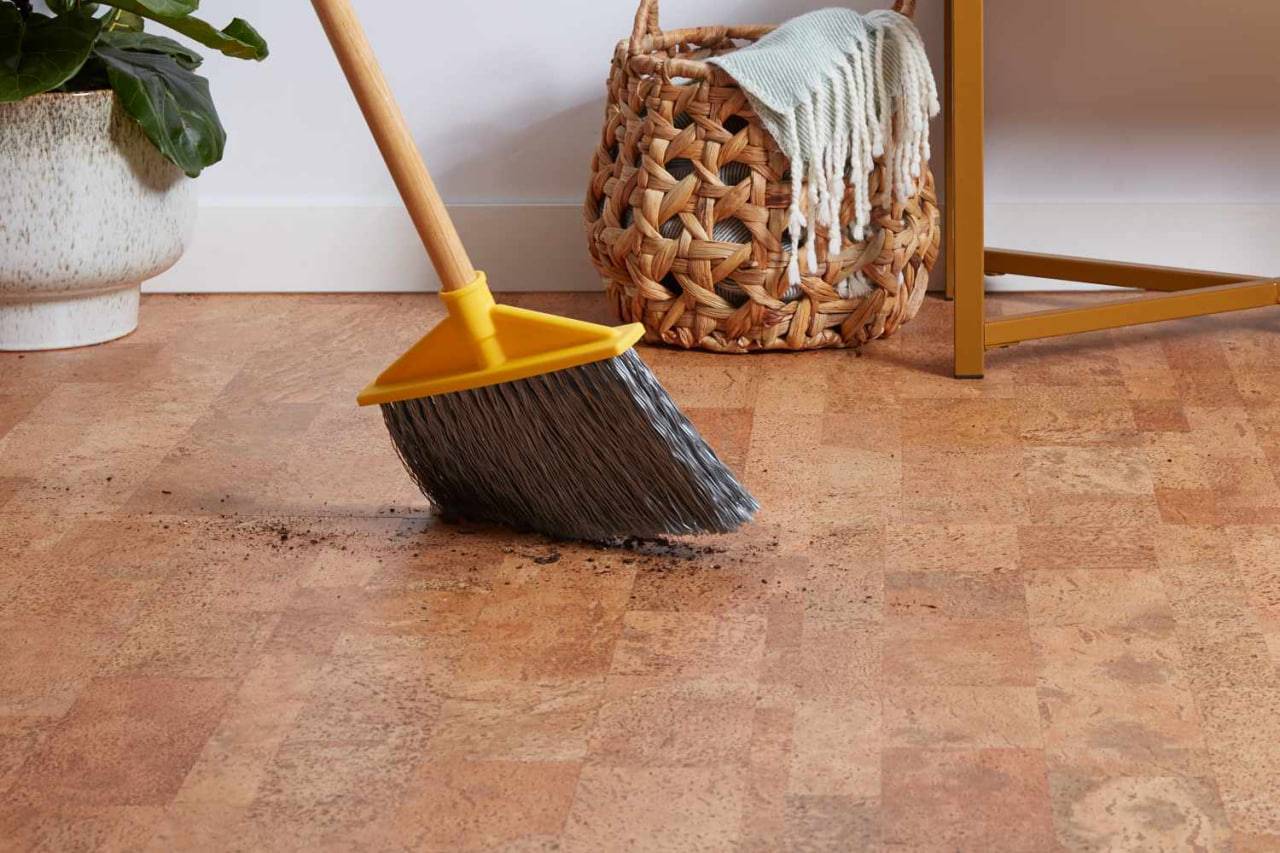Imagine a floor that’s soft underfoot, warm and comfortable, yet surprisingly durable. A floor that whispers “luxury” with its natural texture and whispers “eco-friendly” with its sustainable origins. That, my friends, is the magic of cork flooring.
Cork flooring comes in a stunning variety of styles and colors, so you can personalize your space with a touch of sophistication. Plus, its easy maintenance and impressive durability make it a practical choice for busy households.
Ready to delve deeper into the world of cork flooring? Buckle up, because we’re about to explore its pros and cons, installation tips, and everything else you need to know to bring this sustainable wonder into your home.
The Upsides of Cork: Uncorking the Benefits of Cork Flooring
So, you’re intrigued by the idea of a soft, sustainable floor that whispers luxury and echoes green living? Let’s dive into the abundant pros that make cork flooring a compelling choice:
- Comfort Underfoot: Picture yourself on a cloud… literally. Cork’s inherent elasticity provides a cushiony feel that’s kind to your joints, especially while standing for long periods. It’s a dream for kitchens, laundry rooms, and even home offices where comfort reigns supreme.
- Sound Deadening Symphony: Tired of noisy footsteps reverberating through your home? Cork acts as a natural sound insulator, absorbing noise and creating a peaceful, tranquil atmosphere. This is a game-changer for apartments, shared spaces, or homes with active little ones!
- Naturally Warm Welcome: Unlike the chilly bite of tile or hardwood, cork boasts excellent thermal insulation. Its cellular structure traps air, keeping your feet warm and cozy even during the coldest winters. No more scrambling for slippers – your floor becomes your personal heating pad!
- Hypoallergenic Haven: Breathe easy if allergies are your nemesis! Cork is naturally resistant to mold, mildew, and dust mites, making it a healthy choice for allergy sufferers and pet owners. Say goodbye to sniffles and itchy eyes, and hello to a fresh, breathable home environment.
- Eco-Warrior’s Ally: Choosing cork means stepping lightly on the planet. This renewable resource is harvested sustainably from cork oak trees, which regenerate their bark every 9-10 years. Plus, it’s 100% recyclable, so you can feel good about your environmental impact.
- Aesthetics with Appeal: Don’t think “beige and bland” when it comes to cork. This versatile material comes in a stunning range of styles and colors, from natural tones to vibrant hues. You can even find textured variations for added visual interest. Whether you’re aiming for a classic or contemporary look, cork has something to suit your taste.
- DIY-Friendly Installation: Unlike some flooring options, cork can be relatively easy to install yourself, especially with click-lock tiles. This can save you on labor costs and adds a sense of accomplishment to your home improvement project.
The Downsides of Cork: Understanding the Limitations of Cork Flooring
While cork flooring boasts a plethora of positives, it’s essential to consider its potential drawbacks before making a decision. Here’s a rundown of the cons of cork flooring to help you weigh the pros and cons:
- Susceptibility to Scratches and Dents: While durable, cork isn’t invincible. Pet claws, high heels, and heavy furniture can leave scratches and dents, especially on softer varieties. Consider this if you have active pets or anticipate heavy foot traffic.
- Not Waterproof: Although water-resistant, cork isn’t waterproof. Spills need to be cleaned up promptly to avoid staining and warping. Regular resealing is also recommended for added protection. This might not be ideal for high-moisture areas like bathrooms or laundry rooms.
- Fading in Direct Sunlight: Like most natural materials, cork can fade or discolor with prolonged exposure to direct sunlight. Consider protective window treatments or opt for shaded areas if this is a concern.
- Potential Cost Factor: Compared to some options like vinyl, cork can be more expensive, especially for higher-quality tiles or planks. Weigh the initial cost against its longevity and sustainability benefits to make an informed choice.
- Limited Color Availability: While the color palette has expanded, it’s not as vast as some flooring options. If you have a specific color scheme in mind, you might need to compromise slightly.
- Maintenance Considerations: Although generally low-maintenance, cork does require specific cleaning products and occasional resealing for optimal performance. This might be an extra step compared to completely carefree flooring options.
Breathe New Life into Your Cork Floor: The Power of Refinishing
Just like hardwood, cork boasts a hidden advantage: refinishability! When imperfections mar your beloved cork floor, fear not! You can sand away the blemishes and revive its beauty with a bit of elbow grease.
Imagine: Your floor, smooth and vibrant once more, welcoming you with renewed warmth and charm. Refinishing involves sanding down solid cork tiles or planks, erasing the telltale signs of wear and tear. You can then personalize it further with stains or simply reseal the surface for a protective shine.
This gift of rejuvenation isn’t available to all, however. Engineered cork floors, with their thinner surface layer, don’t offer the thickness needed for sanding. But for solid cork beauties, refinishing opens doors to multiple transformations. Just remember, the number of makeovers depends on the material’s thickness.
So, before resigning yourself to replacement, explore the rejuvenating power of refinishing. Give your cork floor a second chance to shine, and savor the satisfaction of breathing new life into your cherished space!
Does Cork Flooring Suit Your Style?
Craving a cozy and inviting floor with a natural, lived-in charm? Cork might be your perfect match! It’s warm to the touch, offers a comfortable cushion underfoot, and boasts a unique, organic aesthetic.
However, keep in mind cork’s natural softness. Unlike some materials, it develops a characterful patina over time, showcasing the marks of life (think small dents and scratches). This might not be ideal if you desire an impeccably pristine floor.
But here’s the good news! If you embrace a relaxed atmosphere and prioritize affordability and easy installation, cork shines. Compared to pricier, more demanding hardwood, it’s a budget-friendly and DIY-friendly option.
Ultimately, the right choice depends on your priorities. Do you value a perfectly polished look? Consider other materials. But if you seek a warm, comfortable, and easy-going floor that tells a story as you walk on it, cork might just steal your heart (and feet)!
Cork Flooring FAQs: Uncorking the Facts
Is cork flooring comfortable to walk on?
Absolutely! Cork’s natural elasticity makes it soft and springy, providing excellent cushioning for your joints. It’s perfect for kitchens, laundry rooms, or anywhere you spend a lot of time standing.
Does cork flooring muffle noise?
Yes, it acts as a natural sound insulator, absorbing noise and creating a quieter atmosphere. This is ideal for apartments, shared spaces, or homes with active kids.
Is cork flooring warm underfoot?
Definitely! Its cellular structure traps air, keeping your feet cozy even in chilly winters. No more scrambling for slippers!
Is cork flooring good for allergy sufferers?
Yes! Cork naturally resists mold, mildew, and dust mites, making it a healthy choice for allergy sufferers and pet owners. Breathe easy and say goodbye to sniffles!
Is cork flooring eco-friendly?
Absolutely! It’s harvested sustainably from cork oak trees, which regenerate their bark. Plus, it’s 100% recyclable, minimizing your environmental impact.
Does cork flooring come in many colors and styles?
Yes, it does! While not as vast as some options, cork offers a stunning range of natural tones, vibrant hues, and even textured variations to suit your taste.
Is cork flooring easy to install?
Many types, especially click-lock tiles, are relatively DIY-friendly. This saves on labor costs and adds a sense of accomplishment!
Is cork flooring durable?
While not invincible, cork has good resistance to wear and tear, scratches, and dents. With proper care, it can last for many years.
Is cork flooring easy to maintain?
Yes! Regular sweeping, vacuuming, and occasional mopping with a neutral cleaner are all you need. No harsh chemicals or special treatments required.
Is cork flooring unique?
Definitely! The natural texture and warmth add a distinctive touch to any space, creating a timeless aesthetic you won’t find elsewhere.
Can scratched cork flooring be repaired?
Good news! Unlike other materials, solid cork floors can be sanded and refinished to erase imperfections and restore their beauty. However, this option isn’t available for engineered cork.
Is cork flooring right for me?
Consider your priorities! If you value a perfectly pristine look, cork might not be ideal. But if you prefer a comfortable, eco-friendly, and naturally beautiful floor, cork could be your perfect match!



